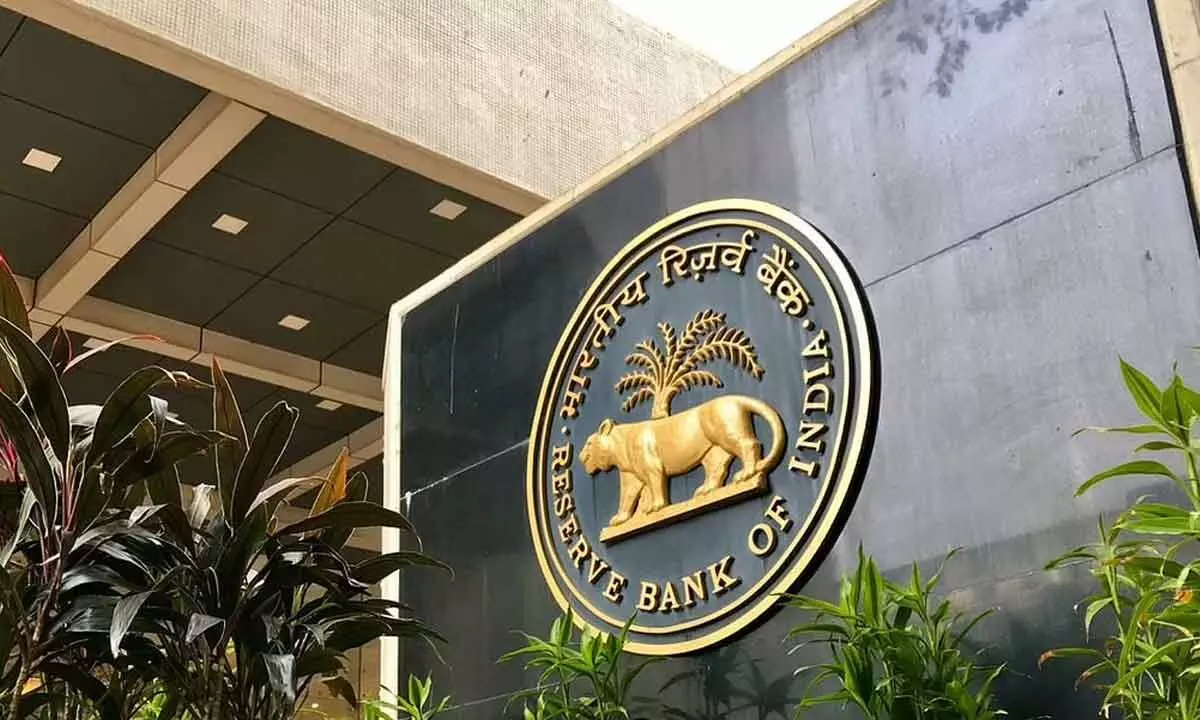Live
- Seven-day national mourning in respect of Dr. Manmohan Singh
- 'I've lost a mentor and guide': Rahul Gandhi grieves demise of Dr. Manmohan Singh
- 'Great loss for all of us': President Droupadi Murmu mourns Manmohan Singh's demise
- Dr Singh presented milestone budget of 1991 which liberalised Indian economy: FM Sitharaman
- PM Modi condoles demise of Dr. Manmohan Singh
- Former Prime Minister Manmohan Singh Dies at 92: A Legacy of Economic Reforms
- Nagesh Trophy: Telangana, Gujarat dominate action on Day 4 with easy wins
- Get Ready for Dreame Technology’s Year-End Amazon Sale – Big Savings on Smart Home Products
- FIR registered as 4 voter forgery cases come to light in Delhi's Okhla constituency
- Ayodhya Ram temple to host majestic anniversary celebrations on Jan 11 with devotional, cultural programmes
Just In
Beware of credit cards or be aware of RBI's new rules


If a credit card isn’t used for a stipulated period, it automatically goes inactive
Beginning this month, the Reserve Bank of India's new regulations came into effect on credit cards. These rules which were published months earlier encompass from the card issuance to credit controls and tokenisation. These're the important and prominent rules that affect the consumers, so should be aware of.
On the activation after issuance of a credit card, the central bank has come up with some stringent rules in favour of the consumer protection. If an individual doesn't activate a new card within 30 days from its issuance, then the issuer must cancel the account within seven working days without levying any charges. Of course, the card could be activated by obtaining an OTP (one-time password) thus giving freedom for the consumer to reject an issued card.
The new rules have guidelines even on the credit enhancements that card issuers do on a periodic basis. Most card issuers use their underwriting, risk parameters, credit history and consumer usage to automatically enhance the credit limit of the issued card. With the new regulations, issuers can't increase the credit limit without a written permission from the customer. However, higher consumption of credit (over 40 per cent) will drastically impact the credit score of the consumers, so avoid rotation of credit.
The new rules has also put the onus on the card issuers to ensure the bills/statements to be provided quickly through email and have at least a fortnight to the consumers before interest is levied. The RBI said, "In order to avoid repeated complaints about late invoicing, the card issuer may propose issuing bills and account statements via internet/mobile banking with the cardholder's authorisation. Card issuers must implement a system to ensure that the cardholder receives the billing statement." And in case of a dispute, the card issuers must respond within 30 days from the date of complaint, if necessary with document support. The credit cardholders are to be provided with a one-time chance to allow flexibility to customise their credit card billing cycle. This is important as each card has its own billing cycle and when multiple cards are being used could lead to accidental missing of the payment. On the closure of a card, the issuer must notify the request of closure via mail or SMS.
Customers must be provided with multiple options like Interactive Voice Response (IVR), a link that's easily accessible on the website, internet banking, mobile application and/or any other method to close the credit card and can't insist on a specified route only. The card issuer is mandated to comply with any request to cancel a card within seven working days provided that all the outstanding dues are cleared.
The new rule doesn't allow the entities involved in card transactions to store any card-related transactions.
Tokenisation replaces the 16-digit card details with an alternative code, called token. The merchant sites usually store the customer data to avoid inputting the repeated data each time they transact. This could lead to lost data/privacy due to hacking, etc. Tokens help protect the users by substituting the data with a random series of alphanumeric (alphabets & numbers) code that's generated by an algorithm. This allows the sensitive data to be shielded. However, tokenisation is optional at the users end and one who doesn't choose have to input their card details at each transaction. This eliminates the coerced or hard-sold cases and protects victims against fake applications. The rule to levy no charge on the card is also a blessing for the consumers. Also, note that if an active card isn't used for a stipulated period, it automatically renders the card to inactive status. Hence, it's better to use all cards regularly to keep them active.
(The author is a co-founder of "Wealocity", a wealth management firm and could be reached at [email protected])

© 2024 Hyderabad Media House Limited/The Hans India. All rights reserved. Powered by hocalwire.com






